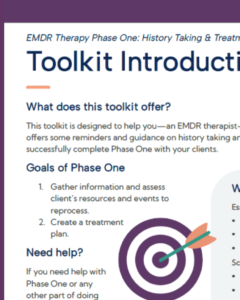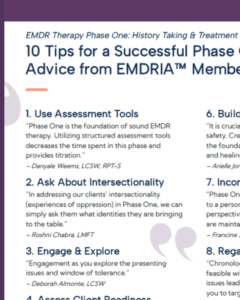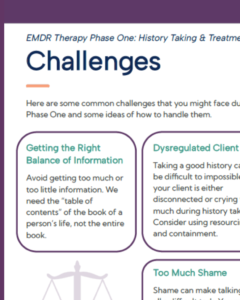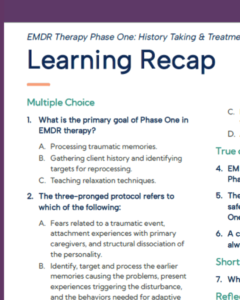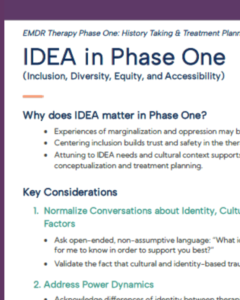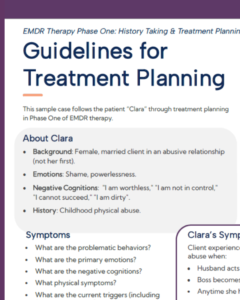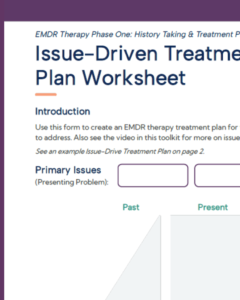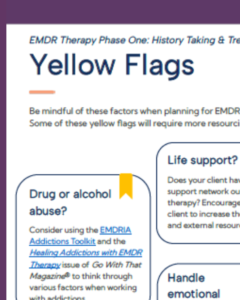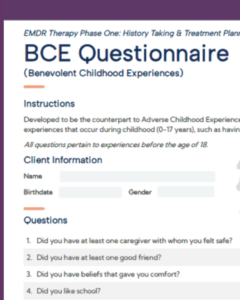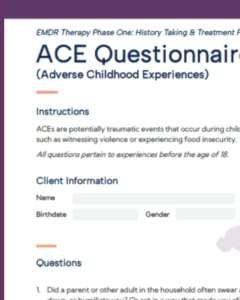Disentangling eye movement desensitization and reprocessing mechanisms of action: The impact of eye movements in the eye blink conditioning task (Psychology and Psychotherapy Theory, Research, and Practice)
This study aimed to explore an EMDR mechanism of action by investigating the effect of horizontal eye movements (EM) on fear extinction learning in healthy individuals, using an Eye Blink Conditioning (EBC) task.
Read MoreFull Packet (Phase 1 Toolkit)
A toolkit designed to help EMDR therapists gather comprehensive client information and assess readiness for EMDR treatment.
Read More10 Tips for a Successful Phase One (Phase 1 Toolkit)
Top phase one EMDR therapy tips such as assess client readiness, create a timeline, build a therapeutic alliance, ask about intersectionality.
Read MoreChallenges (Phase 1 Toolkit)
Here are some common challenges that you might face during Phase One and some ideas of how to handle them.
Read MoreLearning Recap (Phase 1 Toolkit)
Wrap up with a recap of essential concepts and tools to reinforce learning and help you confidently move forward into Phase Two.
Read MoreIDEA in Phase One (Phase 1 Toolkit)
Attuning to IDEA needs and cultural context supports more accurate case conceptualization and treatment planning.
Read MoreGuidelines for Treatment Planning (Phase 1 Toolkit)
This sample case follows the patient “Clara” through treatment planning in Phase One of EMDR therapy.
Read MoreIssue-Driven Treatment Plan Worksheet (Phase 1 Toolkit)
Use this form to create an EMDR therapy treatment plan for the issues the client is hoping to address. Also see the video in this toolkit.
Read MoreYellow Flags (Phase 1 Toolkit)
Factors to keep an eye out for when planning for EMDR therapy with a client. Some require more resourcing or preparation before reprocessing.
Read MoreBCE Questionnaire (Benevolent Childhood Experiences) (Phase 1 Toolkit)
BCEs are favorable experiences that occur during childhood (0-17 years), such as having social support and security.
Read MoreACE Questionnaire (Adverse Childhood Experiences) (Phase 1 Toolkit)
ACEs are potentially traumatic events that occur during childhood (0-17 years), such as witnessing violence or experiencing food insecurity.
Read More

